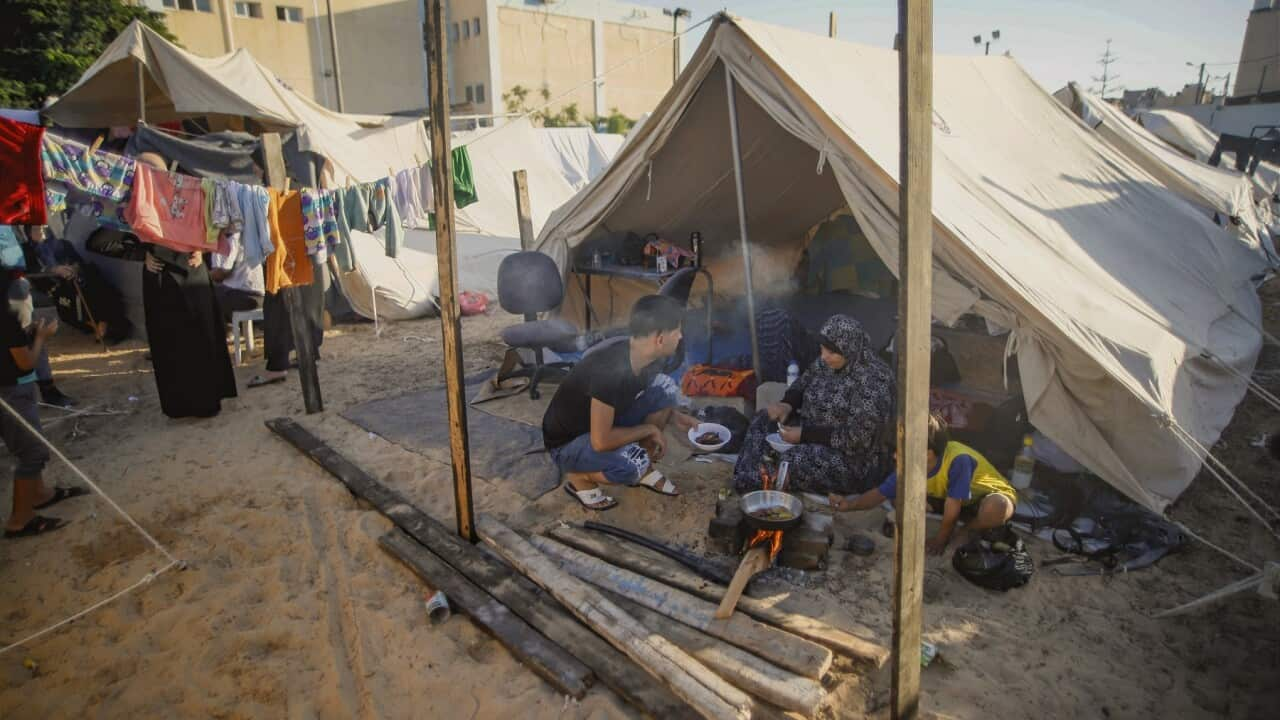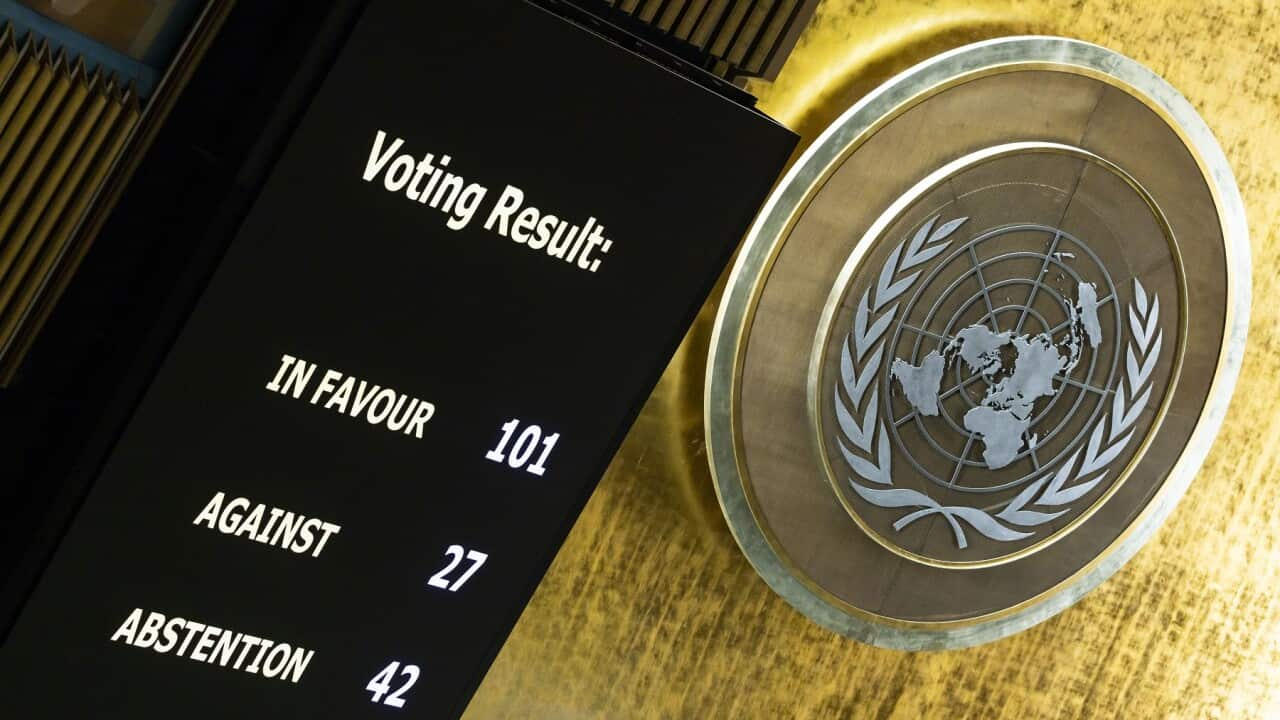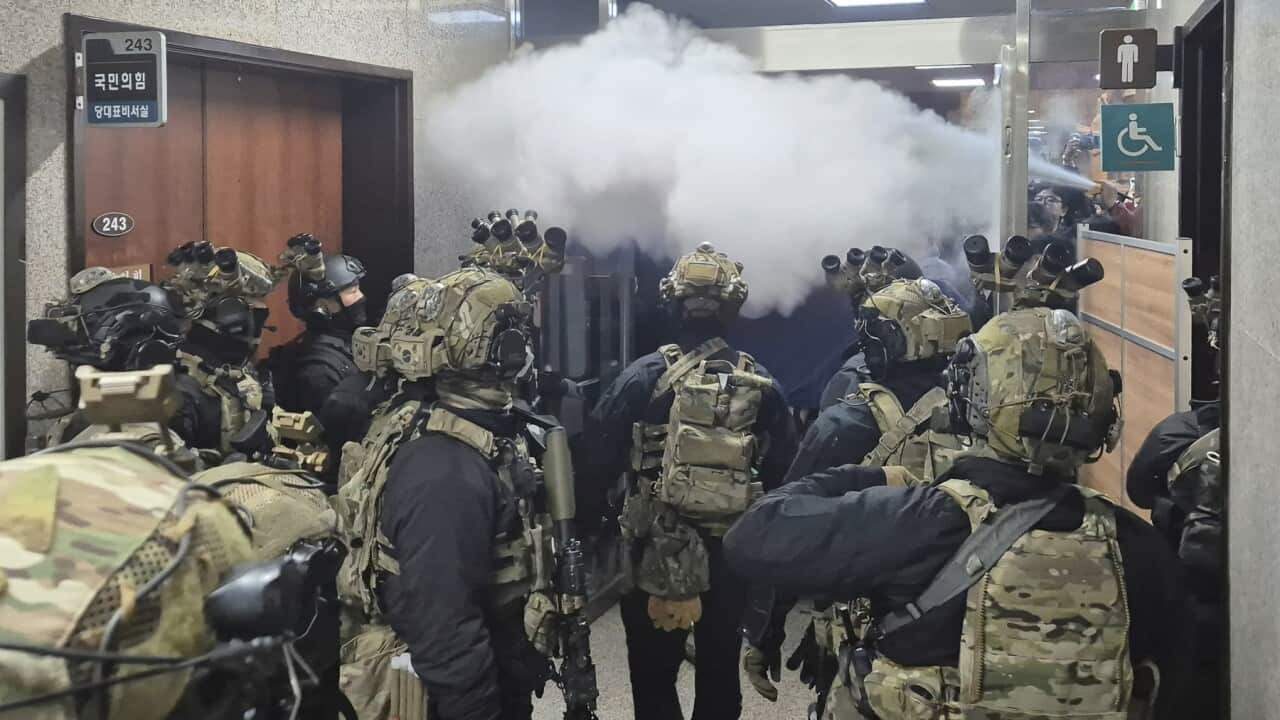TRANSCRIPT
The United Nations High Commissioner for Refugees, Filippo Grandi, has said the number of people displaced from their homes worldwide is estimated to reach a record 114 million, or one in every 73 people.
Between January and June, 1.6 million people around the world applied for asylum, the highest in a half year to date.
The agency estimates that an additional 4 million people have been displaced between June and September, without including the estimated 1.4 million people displaced in Gaza since the start of the conflict in the Middle East
For Community Organiser Saajeda Samaa, who found asylum in Australia after fleeing Afghanistan in 2010, the numbers are a "wake-up call" for the Australian government.
"From my experience from my home, I think it's only going to increase. And given that number, I think now that countries like Australia stand for human rights, and they are a party to so many international treaties, it is their responsibility to address this and do something about it actually, starting from their own home starting from with their own government."
Jane McAdam is the Director of the Kaldor Centre for International Refugee Law at the University of New South Wales.
She says that Australia's international law obligations to refugees are clear-cut.
"Countries like Australia have very well defined legal obligations under the Refugee Convention, and human rights treaties, which preclude us from returning people to situations where they face a well founded fear of persecution, or a real risk of other serious forms of harm."
The Albanese government committed at the 2022 elections to increase its humanitarian resettlement program to 27,000 places per year and 5,000 community-sponsored places.
In August Immigration Minister Andrew Giles announced funding for an additional 2,000 places, bringing the current number of annual places to 20,000.
Director of Advocacy at the Asylum Seeker Resource Centre and Greens Councillor Ogy Simic wants to see the government's full commitment honoured, in addition to other measures to make seeking asylum fairer.
"If the government wants to establish a world leading successful humanitarian settlement system, it needs to not only welcome more refugees, but ensure that the system is fair, efficient and humane, the entire humanitarian visa process is adequately funded, and staffed by people with required skills and experience, provide ongoing study rights and work rights for people seeking asylum on bridging visas for the duration of their protection process, including married to the judicial review and abolish Temporary Protection visas."
Ms Samaa, who found the process of seeking asylum dehumanising, says that the government needs to work harder to not create new trauma for people who have fled conflict and disaster zones.
"You feel like an alien who has just landed on a different planet. It was safe physically for sure but mentally so confusing including the legal system, the social services, and finding your identity. People don't know you, what visa you're on, they don't understand, and in the end you are just an ineligible person, and that was my title in the process of seeking asylum, ineligible, for anything and everything."
According to the UN Refugee Agency's report, conflicts in Sudan, the Democratic Republic of Congo, Myanmar and the Russian war on Ukraine drove the most people from their homes this year.
Droughts, floods and the ongoing crisis in Afghanistan have also led to the increase.
Many have been internally displaced in their own countries, with low-and middle-income countries hosting 75 percent of refugees.
CEO of the Australian Refugee Council Paul Power says this shows that supporting displaced people is not just about increasing the size of domestic resettlement programs.
"It's important from the point of view of international support, that countries such as Australia are involved in doing as much as possible in terms of the sharing of responsibility. Not only to provide options elsewhere for people who need them, but actually also to demonstrate to countries which are hosting significant numbers of displaced people that there is actually international interest in international support, that they're not left alone with the responsibility themselves.''
Ms McAdam says the news that asylum seekers have been detained on the Pacific Island of Nauru for the first time in nine years shows that attitudes towards them may still have a long way to go.
"What we have seen in recent decades is this move to pushing people away or trying to make sure people never get here in the first place, other than the smaller numbers that are hand picked to resettle here. And that is not at all the premise of the Refugee Convention, the International Refugee regime, it is premised on the understanding that there will be proper, fair international cooperation and responsibility sharing.”
Mr Simic, who came to Australia as a refugee aged 11 after a civil war erupted in his hometown of Sarajevo, is hopeful the Albanese government will honour its commitment to a more compassionate approach.
"We've seen Labour government promise to work towards that. And we want to work with the Labour government, but also see the Labour government achieve a world-class humanitarian program that meets the challenge of the time.''













